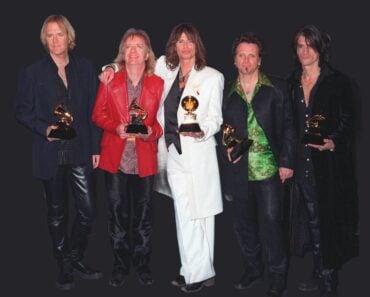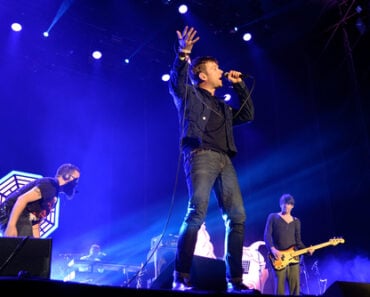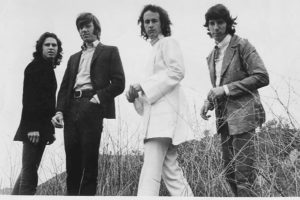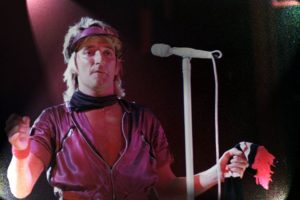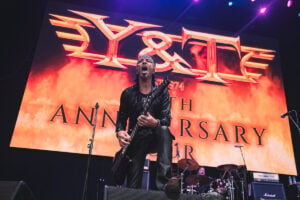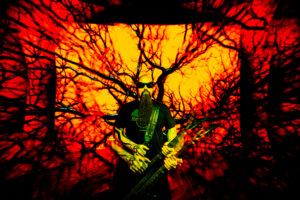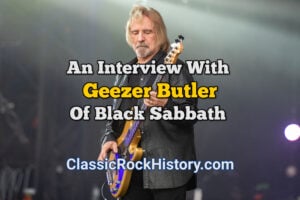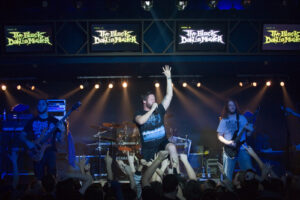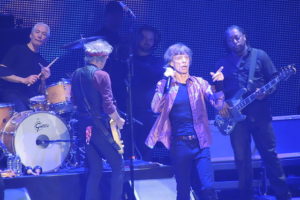
Feature Photo: jgullo, CC BY 2.0 <https://creativecommons.org/licenses/by/2.0>, via Wikimedia Commons
Emerging from the heart of the American South in the late 1960s, the Allman Brothers Band carved a unique path in the burgeoning rock scene. Their music, a potent blend of blues, rock, jazz, and country, resonated deeply with audiences seeking a more soulful and improvisational sound compared to the dominant guitar-driven rock of the era.
The band, formed in Jacksonville, Florida in 1969, consisted of brothers Duane Allman (slide guitar and lead guitar) and Gregg Allman (vocals, organ, songwriting), Dickey Betts (lead guitar, vocals, songwriting), Berry Oakley (bass guitar), Butch Trucks (drums), and Jaimoe Johanson (drums). Their innovative approach, featuring dual lead guitars and a powerhouse rhythm section, earned them a devoted following and critical acclaim.
The Allman Brothers Band’s debut album, self-titled and released in 1969, established their sound and showcased their impressive musicianship. Throughout their career, they amassed an impressive discography, releasing six studio albums, numerous live recordings, and compilation albums. Their 1971 masterpiece, “At Fillmore East,” a double live album capturing the band at their peak, cemented their reputation as one of the greatest live acts of all time.
The Allman Brothers Band drew inspiration from a diverse range of artists, including blues legends like B.B. King and Muddy Waters, jazz icons like Miles Davis and John Coltrane, and rock innovators like The Band and Cream. In turn, they influenced countless musicians across genres, with their improvisational style and soulful southern rock sound leaving an indelible mark on artists like Lynyrd Skynyrd, The Grateful Dead, and Widespread Panic.
For their enduring influence and groundbreaking contribution to American music, the Allman Brothers Band were inducted into the Rock and Roll Hall of Fame in 1995. While their legacy is undoubtedly significant, the journey isn’t without its tragic moments. The band faced the sudden loss of guitarist Duane Allman in 1971 and bassist Berry Oakley in 1972, leading to several disbandments and reunions throughout their career.
Despite these challenges, the Allman Brothers Band remains an iconic force in rock history. Their music continues to inspire and captivate audiences, leaving behind a legacy of improvisation, innovation, and enduring southern charm.
Duane Allman
Duane Allman, a founding member of The Allman Brothers Band, was renowned for his masterful guitar and slide guitar work from the band’s inception in 1969 until his tragic death in a motorcycle accident in 1971. During his brief tenure with the band, Duane’s exceptional skills were integral to the creation of their first three albums: their self-titled debut The Allman Brothers Band (1969), Idlewild South (1970), and the landmark live album At Fillmore East (1971). His innovative slide guitar play not only defined the band’s early sound but also left a lasting impact on the genre of Southern rock. Beyond the band, Duane was a sought-after session musician, contributing to classics such as Derek and the Dominos’ Layla and Other Assorted Love Songs.
Gregg Allman
Gregg Allman, one of the band’s original members, was pivotal to its sound and success from 1969 until the group’s final disbandment in 2014, despite a few hiatuses in between. His soulful voice and keyboard work were staples on all the band’s albums, contributing significantly to their signature blend of rock, blues, and Southern soul. Gregg’s songwriting and vocals were particularly prominent on classics like “Midnight Rider” and “Melissa.” His work with the band earned them a spot in the Rock and Roll Hall of Fame in 1995. Outside The Allman Brothers Band, Gregg had a successful solo career, highlighted by his critically acclaimed album Laid Back (1973).
Dickey Betts
Dickey Betts was a key member of The Allman Brothers Band from its formation in 1969 until 2000. His guitar and slide guitar contributions, along with his songwriting and vocals, were central to the band’s sound. Betts wrote some of the band’s most iconic songs, including “Ramblin’ Man” and “Jessica,” showcasing his ability to blend rock, country, and jazz influences. His work was instrumental on albums such as Brothers and Sisters (1973) and Win, Lose or Draw (1975). Following his departure from the band, Betts continued to make music, leading his own group, Dickey Betts & Great Southern.
Jai Johanny “Jaimoe” Johanson
Jaimoe, a drummer and founding member, has been with The Allman Brothers Band from its inception in 1969 until the band’s final curtain in 2014, with brief breaks in between. His versatile drumming style, blending rock, jazz, and blues rhythms, has been a foundational element of the band’s sound. Jaimoe’s contributions can be heard on all the band’s major albums, providing the complex, driving rhythms that became a hallmark of their live performances. Beyond his work with the band, Jaimoe has led his own group, Jaimoe’s Jasssz Band, exploring a mix of jazz, blues, and rock.
Berry Oakley
Berry Oakley was the original bassist for The Allman Brothers Band, contributing his distinct bass lines and vocals from the band’s formation in 1969 until his untimely death in a motorcycle accident in 1972. Oakley’s bass playing was a critical component of the band’s early sound, particularly on their debut album and Idlewild South. His improvisational style and chemistry with the band’s drummers helped to define the band’s live performances. Despite his short time with the band, Oakley’s influence persisted in their evolving sound.
Butch Trucks
Butch Trucks, one of the founding members of The Allman Brothers Band, served as a drummer from 1969 until the band’s dissolution in 2014. His powerful drumming, along with Jaimoe’s, created the dual-drummer dynamic that became a signature of the band’s sound, contributing to the rhythmic complexity of their music. Trucks played on all of the band’s albums, helping to craft the soundscapes of Southern rock. Beyond his work with the band, Trucks was involved in various musical projects, including the Freight Train Band. His legacy continues through his nephew, Derek Trucks, who joined The Allman Brothers Band in 1999 and has since become a renowned guitarist in his own right.
Chuck Leavell
Chuck Leavell joined The Allman Brothers Band in 1972, stepping in to fill the void left by the loss of Duane Allman and Berry Oakley. His piano and synthesizer work, along with background vocals, brought a new dimension to the band’s sound from 1972 until 1976 and during their 1986 reunion. Leavell’s keyboard artistry shone on albums such as Brothers and Sisters (1973) and Win, Lose or Draw (1975), contributing to hits like “Jessica” and “Ramblin’ Man.” His tenure with the band was marked by a shift towards a more melodic rock and country influence. Beyond The Allman Brothers Band, Leavell has had a distinguished career, notably as a long-standing member of The Rolling Stones’ touring band and as a session musician with Eric Clapton, George Harrison, and many others.
Lamar Williams
Lamar Williams was recruited as the bassist for The Allman Brothers Band following Berry Oakley’s death, serving from 1972 to 1976. His fluid, groove-oriented bass playing contributed to the band’s evolving sound during a period marked by experimentation and change. Williams’ work can be heard on albums like Brothers and Sisters and Win, Lose or Draw, where his influence helped steer the band’s music towards new directions, incorporating elements of jazz, funk, and soul. Tragically, Williams passed away in 1983, but his legacy within the band and his contributions to their sound during a critical phase of their history are remembered by fans and bandmates alike.
David Goldflies
David Goldflies joined The Allman Brothers Band as the bassist in 1978, a period of reformation and resurgence for the group, and remained with them until 1982. His tenure with the band included albums such as Enlightened Rogues (1979), Reach for the Sky (1980), and Brothers of the Road (1981), contributing to the band’s sound as they navigated the changing musical landscape of the late 70s and early 80s. Goldflies’ bass playing supported the band’s return to their roots while exploring new sounds and production techniques. Beyond his time with The Allman Brothers Band, Goldflies has continued to pursue a career in music, showcasing his versatility and commitment to his craft.
Dan Toler
Dan Toler, known for his clean and expressive guitar playing, became a member of The Allman Brothers Band during their late 1970s resurgence, contributing from 1978 to 1982 and briefly in 1986. His tenure with the band included participation in albums such as Enlightened Rogues (1979), Reach for the Sky (1980), and Brothers of the Road (1981). Toler’s guitar work during this period helped shape the band’s sound, blending seamlessly with their established Southern rock style while also introducing new elements to their musical palette. Unfortunately, Dan Toler passed away in 2013, but his contributions to the band and the broader music community continue to be celebrated.
Mike Lawler
Mike Lawler joined The Allman Brothers Band as their keyboardist from 1980 to 1982, a period marked by the band’s exploration of new sounds and styles. His keyboard playing added a distinct texture to the band’s albums during his tenure, including Reach for the Sky and Brothers of the Road. Lawler’s musicianship provided a complementary layer to the band’s evolving sound, contributing to their musical diversity during this era. Beyond his time with The Allman Brothers Band, Lawler has been recognized for his work as a session musician and collaborator with various artists across different genres.
David “Frankie” Toler
David “Frankie” Toler took over the drumming duties for The Allman Brothers Band from 1980 to 1982, bringing his dynamic and skilled drumming style to the group. His contributions during this period are evident on albums like Reach for the Sky and Brothers of the Road, where his playing supported the band’s foray into a more polished, radio-friendly sound. Frankie Toler’s drumming was integral to the band’s rhythm section, providing a solid foundation for their performances and recordings. Sadly, Frankie Toler passed away in 2011, leaving behind a legacy as a talented drummer who contributed significantly to The Allman Brothers Band and other musical projects throughout his career.
Warren Haynes
Warren Haynes is a pivotal figure in the later iterations of The Allman Brothers Band, contributing his formidable skills as a guitarist, slide guitarist, and vocalist from 1989 to 1997 and again from 2000 until the band’s final disbandment in 2014. Haynes’ powerful and soulful playing became a hallmark of the band’s sound during his tenure, contributing to albums such as Seven Turns (1990), Shades of Two Worlds (1991), and the acclaimed live album An Evening with the Allman Brothers Band: First Set (1992). His ability to blend seamlessly with the band’s existing sound while also pushing their musical boundaries is a testament to his talent and versatility. Beyond The Allman Brothers Band, Haynes is known for his work with Gov’t Mule, his solo projects, and his collaborations with a wide range of musicians, showcasing his broad influence on the rock and jam band scenes.
Johnny Neel
Johnny Neel, a versatile musician known for his work on keyboards, harmonica, and vocals, was part of The Allman Brothers Band from 1989 to 1990. His brief but impactful tenure with the band coincided with their resurgence in the late 1980s and early 1990s, contributing to the album Seven Turns. Neel’s diverse musical abilities added a new dimension to the band’s sound, incorporating elements of blues, soul, and country into their Southern rock foundation. After his time with The Allman Brothers Band, Neel continued to make his mark in the music industry, working with a variety of artists and bands, and pursuing his own projects, showcasing his wide-ranging talent.
Allen Woody
Allen Woody joined The Allman Brothers Band in 1989, bringing his robust bass techniques and background vocals to the group until 1997. Woody’s tenure was marked by a period of revitalization for the band, contributing to albums such as Seven Turns (1990), Shades of Two Worlds (1991), and Where It All Begins (1994). His energetic playing and stage presence added a new dynamic to the band’s performances and recordings. Tragically, Woody passed away in 2000, but his legacy lives on through his influential work with The Allman Brothers Band and as a founding member of Gov’t Mule, alongside bandmate Warren Haynes.
Marc Quiñones
Marc Quiñones became a member of The Allman Brothers Band in 1991, adding his expertise on percussion, drums, and background vocals until the band’s conclusion in 2014. His addition brought a new rhythmic complexity to the band’s sound, evident in live performances and recordings throughout his tenure. Quiñones’ contributions can be heard on albums like An Evening with the Allman Brothers Band: 2nd Set (1995) and Hittin’ the Note (2003), among others. His presence enhanced the band’s exploration of Latin and Afro-Cuban rhythms, further enriching their musical tapestry. Beyond The Allman Brothers Band, Quiñones has an extensive career as a sought-after percussionist, working with a wide range of artists across various genres.
Oteil Burbridge
Oteil Burbridge, renowned for his innovative bass playing and vocals, joined The Allman Brothers Band in 1997 and remained with them until their farewell in 2014. His fluid, melodic bass lines and ability to harmonize added a fresh dimension to the band’s sound during this period. Burbridge’s musicianship is showcased on albums such as Peakin’ at the Beacon (2000) and Hittin’ the Note (2003), contributing to the band’s enduring legacy. Outside of The Allman Brothers Band, Burbridge has made significant contributions to the jam band scene, particularly with his work in the Tedeschi Trucks Band and his own project, Oteil & the Peacemakers.
Jack Pearson
Jack Pearson served as a guitarist, slide guitarist, and vocalist for The Allman Brothers Band from 1997 to 1999. His tenure, though brief, was impactful, bringing a soulful touch and technical prowess to the band’s evolving sound. Pearson’s contributions during this period are notable for their blend of blues, jazz, and Southern rock elements, complementing the band’s rich musical heritage. After departing from The Allman Brothers Band, Pearson continued to pursue a respected career as a session musician and solo artist, showcasing his versatile guitar skills and broad musical range.
Derek Trucks
Derek Trucks, nephew of founding member Butch Trucks, joined The Allman Brothers Band as a guitarist and slide guitarist in 1999, remaining until the band’s dissolution in 2014. Trucks’ prodigious talent and slide guitar mastery infused the band with a new energy and creativity, contributing to their later albums and memorable live performances. His tenure with the band solidified his reputation as one of the preeminent guitarists of his generation. Beyond The Allman Brothers Band, Trucks has achieved great success with the Tedeschi Trucks Band, which he leads with his wife, Susan Tedeschi, blending blues, soul, and rock in their acclaimed body of work.
Jimmy Herring
Jimmy Herring, a guitarist known for his work in the jam band scene, joined The Allman Brothers Band in 2000, bringing his distinctive blend of rock, jazz, and fusion to the group. Though his time with the band was relatively short, Herring’s contributions during this period showcased his formidable skills and adaptability, adding depth to the band’s live performances. Herring’s career outside The Allman Brothers Band includes stints with Widespread Panic, The Aquarium Rescue Unit, and The Dead, among others, cementing his status as a versatile and respected figure in the world of improvisational rock music.


